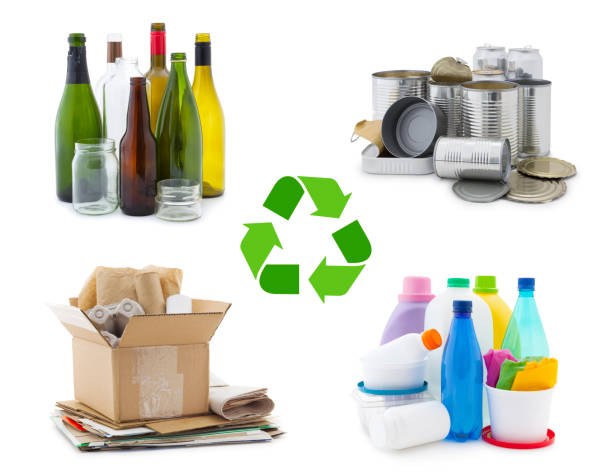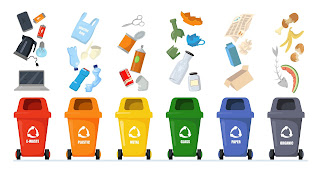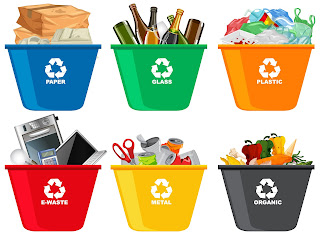The Sustainable Spin: Recycle Promotional Items for a Greener Future
In today's world, where environmental consciousness is on the rise, businesses are being challenged to adopt sustainable practices in all aspects of their operations. One area that often goes overlooked is the realm of promotional items. These are the branded giveaways and gifts that companies distribute at events, trade shows, and as part of their marketing campaigns. While these items serve as excellent marketing tools, they can also contribute to waste and environmental degradation. However, there's a solution that aligns with both marketing goals and eco-friendly initiatives: recycling promotional items.
The Impact of Promotional Items on the Environment
Promotional items play a pivotal role in building brand awareness, customer engagement, and loyalty. However, the production of these items often involves materials like plastics, metals, and other non-biodegradable substances. Many of these items end up in landfills, contributing to pollution and waste accumulation. With the increasing emphasis on sustainability, businesses need to reconsider their approach to promotional items and explore ways to reduce their environmental impact.
Recycling Promotional Items: A Win-Win Strategy
Recycling promotional items is a proactive approach that benefits both businesses and the environment. Here's why:
Reduced Waste: By recycling or upcycling promotional items, businesses can divert these items from landfills, helping to reduce waste and prevent pollution.
Positive Brand Image: Embracing sustainable practices, including recycling promotional items, enhances a company's reputation. Consumers today are more likely to support brands that demonstrate a commitment to environmental responsibility.
Cost-Efficiency: Recycling promotional items can be more cost-effective than producing new ones. It eliminates the need for new materials and production processes, saving resources and money.
Creative Marketing: Repurposing promotional items in creative ways can spark engagement and conversations among customers, leading to increased brand visibility and awareness.
Recycling Ideas for Promotional Items
Re-Gifting Campaigns: Encourage customers to return unused or unwanted promotional items in exchange for a discount on their next purchase.
Upcycling Workshops: Host workshops where customers can learn to transform old promotional items into new and useful products, such as tote bags, pencil holders, or even decorative pieces.
Donation Drives: Collect unwanted promotional items and donate them to local charities, schools, or community organizations that can put them to good use.
Eco-Friendly Swaps: Offer customers the option to trade in their old promotional items for eco-friendly alternatives, like reusable water bottles, cloth bags, or plantable seed paper products.
Limited Edition Collectibles: Turn recycling into an exclusive opportunity by creating limited-edition products crafted from recycled promotional items. This can incentivize customers to engage and participate.
Collaborative Art Projects: Partner with local artists to repurpose promotional items into unique pieces of art that can be displayed in your business or shared online.
Conclusion
As businesses strive to embrace sustainability and make a positive impact on the environment, the concept of recycle promotional items gains significance. By recycling or upcycling these items, companies can not only minimize waste but also foster a deeper connection with their audience. As consumers increasingly demand eco-friendly practices, recycling promotional items stands as a responsible choice that supports both marketing objectives and a greener future. So, let's turn the cycle of promotion into a cycle of sustainability, where every giveaway becomes an opportunity to make the world a better place.
Promotional items play a pivotal role in building brand awareness, customer engagement, and loyalty. However, the production of these items often involves materials like plastics, metals, and other non-biodegradable substances. Many of these items end up in landfills, contributing to pollution and waste accumulation. With the increasing emphasis on sustainability, businesses need to reconsider their approach to promotional items and explore ways to reduce their environmental impact.
Recycling Promotional Items: A Win-Win Strategy
Recycling promotional items is a proactive approach that benefits both businesses and the environment. Here's why:
Reduced Waste: By recycling or upcycling promotional items, businesses can divert these items from landfills, helping to reduce waste and prevent pollution.
Positive Brand Image: Embracing sustainable practices, including recycling promotional items, enhances a company's reputation. Consumers today are more likely to support brands that demonstrate a commitment to environmental responsibility.
Cost-Efficiency: Recycling promotional items can be more cost-effective than producing new ones. It eliminates the need for new materials and production processes, saving resources and money.
Creative Marketing: Repurposing promotional items in creative ways can spark engagement and conversations among customers, leading to increased brand visibility and awareness.
Recycling Ideas for Promotional Items
Re-Gifting Campaigns: Encourage customers to return unused or unwanted promotional items in exchange for a discount on their next purchase.
Upcycling Workshops: Host workshops where customers can learn to transform old promotional items into new and useful products, such as tote bags, pencil holders, or even decorative pieces.
Donation Drives: Collect unwanted promotional items and donate them to local charities, schools, or community organizations that can put them to good use.
Eco-Friendly Swaps: Offer customers the option to trade in their old promotional items for eco-friendly alternatives, like reusable water bottles, cloth bags, or plantable seed paper products.
Limited Edition Collectibles: Turn recycling into an exclusive opportunity by creating limited-edition products crafted from recycled promotional items. This can incentivize customers to engage and participate.
Collaborative Art Projects: Partner with local artists to repurpose promotional items into unique pieces of art that can be displayed in your business or shared online.
Conclusion
As businesses strive to embrace sustainability and make a positive impact on the environment, the concept of recycle promotional items gains significance. By recycling or upcycling these items, companies can not only minimize waste but also foster a deeper connection with their audience. As consumers increasingly demand eco-friendly practices, recycling promotional items stands as a responsible choice that supports both marketing objectives and a greener future. So, let's turn the cycle of promotion into a cycle of sustainability, where every giveaway becomes an opportunity to make the world a better place.




Comments
Post a Comment